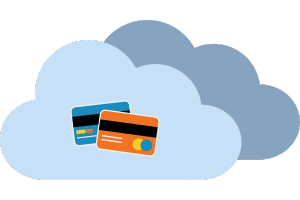Seamless payment processing is the foundation for smooth business operations, and Shopify sits at the forefront for many business owners. The platform offers a range of options, but many merchants have questions regarding Shopify Plus compared to the service’s more basic offerings. Before upgrading, it’s important to understand the differences between Shopify vs Shopify Plus.
What is Shopify?
Shopify is primarily an eCommerce payment processing platform that handles the backend logistics of financial transactions. However, the platform also has a variety of other business functionalities. For example, it sells point-of-sale (POS) terminals, allowing retailers to merge the management of their digital and in-person Shopify sales into one comprehensive platform. Users can also use more advanced functions such as inventory management, analytics, reporting, shipping discounts, and even business loans. Essentially, Shopify is a centralized platform that helps merchants oversee and run their business operations online.
What is Shopify Plus?

Shopify Plus is an upgraded version of the original platform. It’s primarily designed for larger-scale enterprises that require more complex functionalities.
To start, Shopify Plus can facilitate an increased volume of transactions per user, which is essential for businesses already making increased sales or those who intend to scale soon.
Shopify Plus merchants also enjoy more intricate marketing and sales functionalities, greater customization, and many other advanced features. What’s more, a Shopify Plus plan supports more API calls, making it possible to increase the number of custom app integrations.
Shopify vs Shopify Plus: How Do They Differ?
The basic distinction between Shopify and Shopify Plus is clear, but what other differences can users expect? Enterprise-level organizations interested in upgrading to Shopify Plus may have more complex eCommerce needs requiring additional digital tools. Are the added features worth the Shopify Plus subscription?
Here’s a breakdown of the most important Shopify Plus features compared to the original subscription tier.

Customization and branding
Both Shopify and Shopify Plus users can choose from a wide range of website themes to diversify their eCommerce storefronts and built-in branded elements. However, the extent to which Shopify Plus users can do marketing and customization is far greater.
For starters, Plus users can change the themes’ underlying codebases, allowing them to control and shape the digital design on a granular level.
Shopify Launchpad is also only available to Plus users. It’s a marketing tool that helps users automate promotional events like product launches and run sales. Shopify Flow, which automates administrative tasks like inventory, risk, and order management tasks, is another Plus exclusive.
On top of these additional upgrades, Plus offers checkout customization through Shopify Liquid. This additional feature lets brands change the backend logic of their checkout screen, providing a more professional and eye-catching layout.

APIs and integrations
APIs facilitate all system integrations between third-party apps. For example, if a brand wants to use non-affiliated order management software in its digital ecosystem, it must use APIs to connect its payment processing solution with this new app.
The more API integrations allowed, the more access a merchant has to third-party solutions in the App Store. Consequently, Shopify Plus offers users more APIs than are available with standard subscriptions. This opens the door to the extensive features and functionalities available via third parties.
This can prove highly advantageous for businesses that require a more complex digital toolkit to streamline their operations. However, if Shopify’s existing API functionalities are sufficient for business, additional APIs will be of limited value.

Scalability and performance
One of the most important features upgrading to Shopify Plus can offer enterprises is unlimited staff accounts. Standard Shopify subscriptions offer five to 15 staff accounts, depending on the plan type. However, this may not be enough access for enterprise retail workforces.
Merchants with many employees will likely want to invest in Shopify Plus over the standard tier subscription. Businesses that intend to scale in the coming year should also invest in Shopify Plus to avoid hard limits on their internal growth.
Additional staff access can also lead to improved performance. More hours can be put into improving the niche aspects of the storefront. Plus, those with access to a business’s Shopify can leverage their experience to make the most of advanced functionalities and integrations.

Internationalization and multi-store management
International operations run better with Shopify Plus than the platform’s original subscription features. The upgraded Plus version is set up to facilitate international and multi-location operations.
Shopify Plus allows enterprises to create customized customer interfaces based on specific regions; this way, a global operation can feel local to customers. Headless commerce functionality— where the customer interaction between the front end of the store is separate from the backend code running the website—means that businesses can easily make changes to customized eCommerce store interfaces without impacting or disrupting other aspects of the website.

Pricing and value
As expected, the additional features and functions that come with a Shopify Plus subscription cost extra.
A regular Shopify subscription, paid annually, is $29/month for a Basic plan, $79/month for a standard Shopify plan, and $299/month for an Advanced plan.
On the other hand, the Shopify Plus pricing is more complicated, as fees are based on sales volume. Costs start at a minimum of $2,000/month for a standard Shopify Plus setup. However, if 0.25% of your sales volume exceeds this minimum, you’ll pay the greater cost (capped at a total fee of $40,000).
When Should I Choose Shopify vs Shopify Plus?
Businesses need to calculate features and functions to determine if upgrading to Shopify Plus is worth the costs. However, it generally holds true that business size can determine if Shopify Plus is worth it.
Enterprise-level businesses that net over $1 million in revenue will likely need Shopify Plus to manage operations. On the other hand, smaller businesses that bring in less than $1 million can often be satisfied with Shopify’s basic features and functions.
That said, there are always outliers that don’t fit the generalizations. Some smaller businesses may need Shopify Plus because they operate internationally. To determine the best subscription tier, businesses must lay out which features are essential to properly functioning operations.

Shopify: The ideal platform for SMBs and growing businesses
To put it simply, standard Shopify subscriptions are ideal for a variety of small and growing businesses. The platform is particularly suited to eCommerce websites, retailers, startups, and service-based businesses.
The platform offers a robust, scalable solution for eCommerce, enhanced with customization options, advanced support, and sophisticated features crucial for smaller-scale businesses. The platform can perfectly fit startups aiming to amplify their online footprint.
Shopify’s POS integrations are ideal for retail and service-based locations that need to merge digital and in-person sales solutions. The intuitive user interface also helps business owners who may not have the time or resources to train employees on complex technical solutions.
Accordingly, smaller merchants and retailers might want to save their investment funds and purchase more affordable Shopify subscriptions.

Shopify Plus: An eCommerce portal for large operations and high-volume merchants
Shopify Plus is well worth the additional costs for larger-scale operations. Some of the most prolific eCommerce brands leverage the high volume capacity of Shopify Plus to run their million-dollar brands.
Furthermore, emerging and rapidly expanding businesses, categorized as high-growth businesses, can leverage Shopify Plus’s scalable infrastructure, which is vital for their accelerated growth trajectories. Large eCommerce businesses that also host physical storefronts are frequent users of Shopify Plus as it adeptly manages the complexities of integrating physical and online retail operations.
Essentially, Shopify Plus is ideal for businesses with high sales volumes. It excels in catering to businesses with multiple locations, providing exclusive features and functionalities essential for supporting and fostering their growth and scalability in competitive markets.
Shopify vs Shopify Plus: Which Is More Worth It?

Shopify and Shopify Plus are both prominent eCommerce platforms. However, they cater to different scales of businesses and come with distinct features and capabilities. Shopify is primarily designed for small to medium-sized businesses, offering user-friendly tools for setting up an online store and essential eCommerce functionalities like payment processing, inventory management, and basic analytics. On the other hand, Shopify Plus is tailored for larger businesses and high-volume sellers. It provides more advanced features and greater scalability than the standard Shopify offering. It includes the ability to handle higher traffic volumes and complex sales strategies.e
Businesses deciding between Shopify and Shopify Plus should consider each platform and how it integrates with other essential services. A key consideration is integrating a reliable payment gateway solution, such as those PaymentCloud provides. PaymentCloud solutions can seamlessly integrate with both Shopify and Shopify Plus, ensuring secure and efficient eCommerce processing regardless of volume.
FAQs
When should I upgrade from Shopify to Shopify Plus?
Deciding to upgrade from Shopify to Shopify Plus hinges on specific business needs and objectives. Generally, brands consider this move when monthly online sales approach around $80,000, though this can vary.
One key advantage of Shopify Plus is its lower transaction fees, which are particularly beneficial for businesses with high sales volumes. Plus, the platform offers unique tools and features, like custom checkout options, bespoke app creation, and sophisticated discount structures—all of which are essential for scaling a business. Additionally, Shopify Plus users gain access to marketing features that can enhance customer reach across major advertising platforms.
That said, the bottom line is that each business will need to do a cost-benefit analysis to determine if upgrading is worth the additional costs.
Which business types are best for Shopify Plus?
The ideal business for Shopify Plus handles a high volume of transactions. The upgraded version of Shopify serves both eCommerce and in-person retailers at the enterprise level.
However, the upgrade can prove worth the costs even for smaller operations. Advanced marketing, customization, integration, and multi-store management features add unique value that certain business models need to thrive.
Is Shopify worth it for beginners and small businesses?
While each situation is different, Shopify is generally an excellent platform with which to start a business. It’s highly regarded as a suitable platform for beginners and small businesses venturing into online retail. A user-friendly online store builder makes it easy to create a customized storefront with drag-and-drop functionality, select from various themes, and enhance storefronts with third-party apps.
Additionally, Shopify offers effective branding tools, assisting users in developing their marketing identity, from generating a business name to creating a free logo and acquiring a custom web domain.







